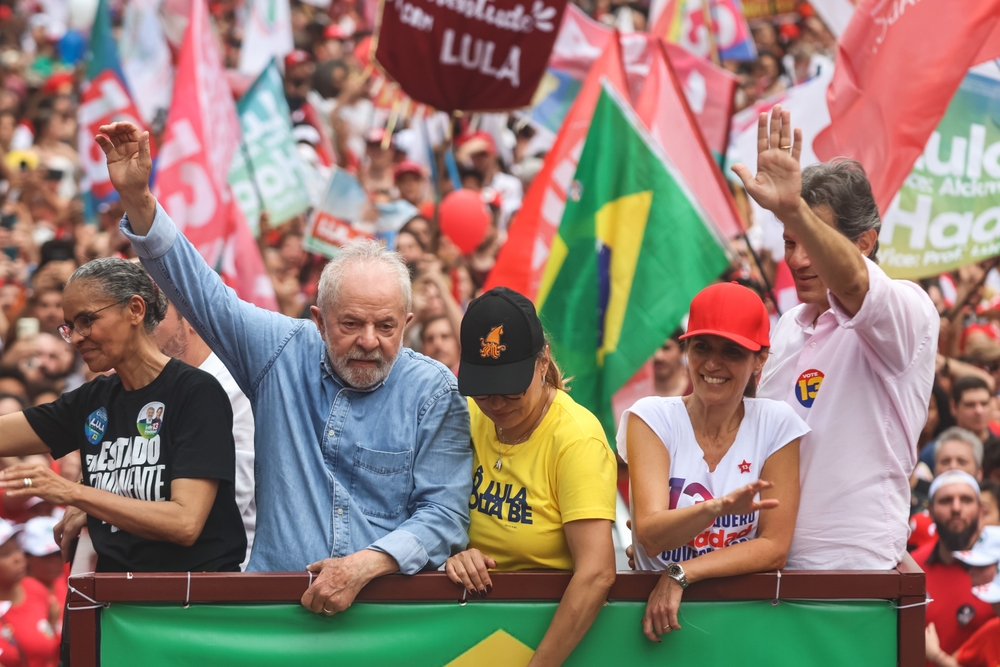“I won’t stop because I’m no longer a human being. I’m an idea. An idea mixed with the ideas of all of you.” So declared Luiz Inácio Lula da Silva, in April 2018, as he prepared to turn himself in and go to prison.
Rising from shining shoes to leading trade unions, to twice being elected president of Brazil, Lula would go on to serve more than 500 days in jail on corruption charges, brought against him as part of the Operation Car Wash investigation, which irreversibly tarnished the reputation of his center-left Workers’ Party.
But Lula’s bold claim about his invincibility proved true. Four years later, courts quashed his criminal convictions and found them politically motivated, and he was elected as Brazil’s president for a third time, at the age of 77.
On October 30, Lula won the presidential election by the tightest margin in Brazilian history, obtaining 50.9 percent of the vote to beat incumbent far-right President Jair Bolsonaro.
Despite his narrow lead, he received the most votes (60 million) ever obtained by a candidate in Brazil since 1989, when the country held its first post-dictatorship election.
Lula’s electoral victory will cement his place in history books, and possibly that of Lulism as a whole.
“He faces important disputes in the moral and behavioral sphere in relation to corruption scandals. Depending on how he decides to act during this new mandate, it is a golden opportunity to coin Lulism as a movement that surpasses him,” says Carlos Pereira, a political scientist at the Fundação Getulio Vargas (FGV) think tank.
The term Lulism was coined by political scientist André Singer in the mid-2000s. In general terms, Mr. Singer understands Lulism as the movement around Lula’s personal image more than that of the Workers’ Party he founded in 1980. The movement embraces leftist principles without pushing for profound changes for financial elites.
Mr. Singer was the presidential spokesman in Lula’s first government between 2003 and 2007, and his work has spanned various facets of Lulism, including anti-Lulism —...


 Search
Search






































